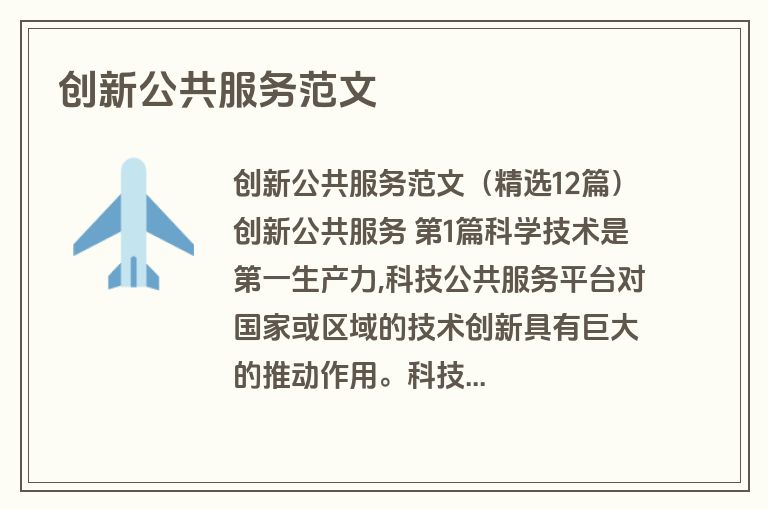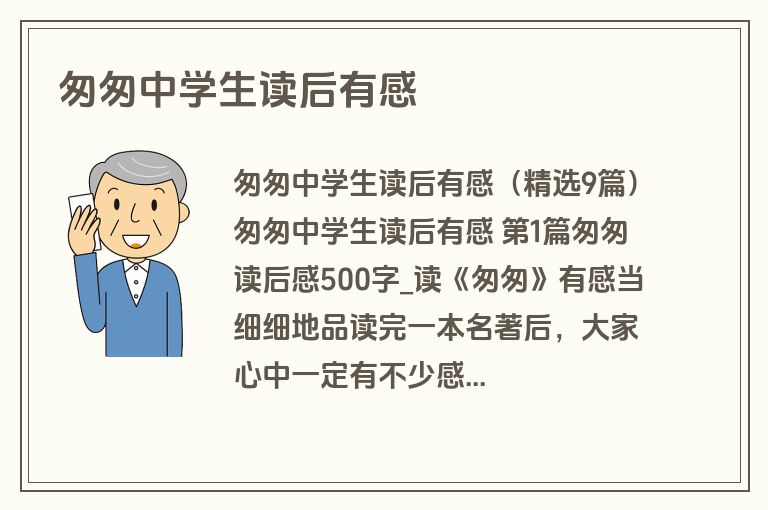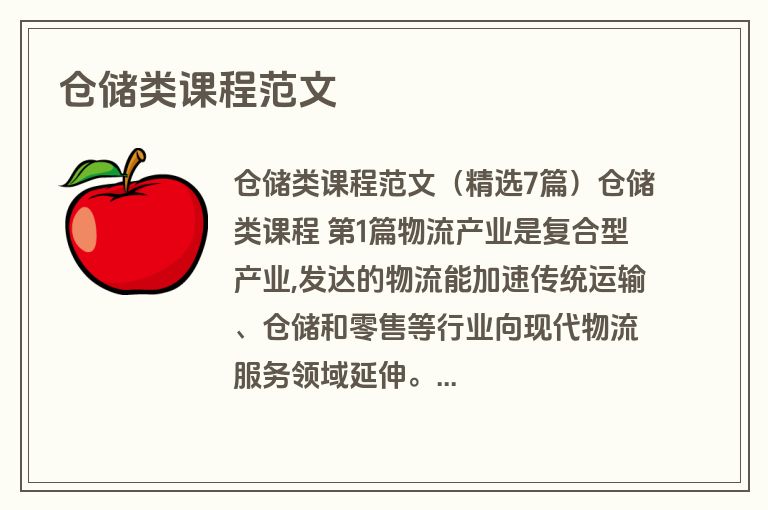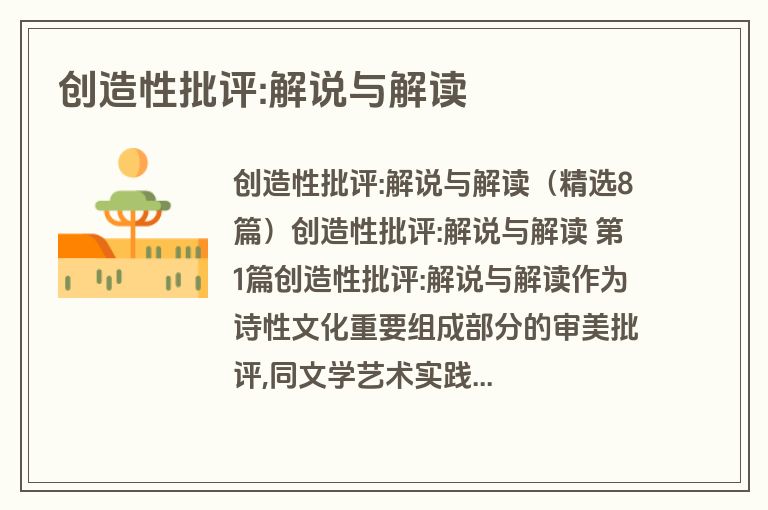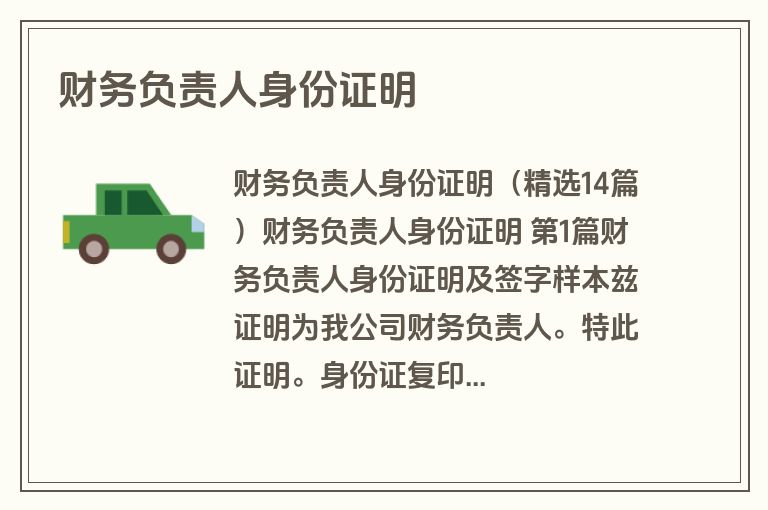一年级期中复习题(精选6篇)
一年级期中复习题 第1篇
一年级语文上册期中复习题
一、 加一笔变新字
口( ) 二( ) 大( ) 人( ) 日( ) 木( )
二、减一笔变新字
天( ) 禾( ) 大( ) 子( ) 目( ) 三( )
二、 写出意思相反的词
大——( ) 上——( ) 南——( ) 东——( )
男——( ) 关——( ) 反——( ) 外——( )
三、连一连
一片 一座 一朵 一群 三只 五本 三头
鸟 花 叶子 书 牛 山 大雁
看 句子
看见 字
我看见闪闪的星星。 词语
江 东 青 家 可 雪 数 音 下 语 树 采
花 是 里 蛙 西 南 乐 学 莲 文 棋 叶
草芽 荷叶 谷穗 雪人 弯弯的 闪闪的 小小的 蓝蓝的
夏天 秋天 春天 冬天 天 船 月儿 星星
云 水秀 蓝天 鱼儿 他 打 马 画 u
雪 虫 树林 种子 七 地 你 棋 a
花 雨 泥土 白云 目 不 足 五 i
鸟 桃红 祖国 小鸟
山清 风 小河 我们
柳绿 树
一年之计 寸光阴 坐如 站如 行如 卧如
一日之计 在于春
一寸光阴 在于晨
寸金难买 一寸金 弓 风 钟 松
sān diǎn shuǐ 亻 tí shǒu pánɡ 人
dān rén pánɡ 纟 hé zì pánɡ 禾
yǔ zì tóu 氵 cǎo zìtóu 扌
jiǎo sī pánɡ 亻 rén zì tóu 艹
mén zì kuànɡ 讠 bǎo ɡài tóu 木
tí tǔ pánɡ 夂 nǚ zì pánɡ 虫
zhé wén ér 土 chónɡ zì pánɡ 宀
yán zì páng 扌 mù zì pánɡ 女
三、 按课文内容填空。
1.弯弯的( )( )小小的船,小小的船( )两( )尖。我在小小的船( ),
只看见闪闪的星星蓝蓝的.( )。
(1)小小的船指的是
(2)我在小小的船里看见什么?用“———”在文中画出来。
2、江南可采莲,莲叶何( )( ),鱼戏莲叶间,鱼戏莲叶( ),鱼戏莲叶( ),
鱼戏莲叶南,鱼戏莲叶北。
3.雪( )( )肚( )( )挺,他顽皮地说:“我就是冬( )。”
4.( )气凉( ),树叶黄( ),( )片片叶( )从树( )落( )
来。X Kb 1.C om
5、( )( )( )四五,金( )水( )土。( )地分( )( ),
( )( )照今古。
四.写笔画,数笔画。
1,“女”的笔顺 共( )笔,第一笔是( )。
2,“耳”的笔顺 共( )笔,第三笔是( )。
3,“手”的笔顺 共( )笔,第三笔是( )。
4,“四”的笔顺 共( )笔,第四笔是( )。
5,“头”的笔顺 共( )笔,第三笔是( )。
6,“里”的笔顺 共( )笔,第五笔是( )。
7,“东”的笔顺 共( )笔,第二笔是( )。
8,“是”的笔顺 共( )笔,第六笔是( )。
9,“开”的笔顺 共( )笔,第三笔是( )。
10,“云”的笔顺 共( )笔,第三笔是( )。
11,“火”的笔顺 共( )笔,第二笔是( )。
12,“目”的笔顺 共( )笔,第二笔是( )。
13,“西”的笔顺 共( )笔,第三笔是( )。
14,“可”的笔顺 共( )笔,第二笔是( )。
15,“田”的笔顺 共( )笔,第三笔是( )。
16,“子”的笔顺 共( )笔,第二笔是( )。
17、“上”的笔顺 共( )笔,第二笔是( )。
18、“山”的笔顺 共( )笔,第二笔是( )。
20、“虫”的笔顺 共( )笔,第四笔是( )。
一年级四班期中复习题2(仅供本班使用) 姓名
一,把句子补充完整。
1.我一会儿 ,一会儿 。
2.妈妈一会儿 ,一会儿 。
3,我在 。
4.爸爸在 。
5, 在 。
6,我会 。
7,我看见 。
8、弯弯的月儿像 。
9、小云在读书,我也 。
10、春天来了,花儿 。
二、比一比,再组词。
一( ) 子( ) 人( ) 天( )
三( ) 了( ) 大( ) 云( )
手( ) 日( ) 东( ) 里( )
禾( ) 目( ) 可( ) 西( )
四( ) 儿( ) 头( ) 月( )
女( ) 开( ) 山( ) 火( )
口( ) 耳( ) 上( ) 田( )
是( ) 虫( ) 了( )
三、 读拼音写笔画再写带有这个笔画的字。
hénɡ shù piě diǎn shù ɡōu piě diǎn
( ) ( ) ( ) ( ) ( ) ( )
shù wān ɡōu hénɡ zhé piě zhé hénɡ zhé ɡōu
( ) ( ) ( ) ( )
hénɡ piě shù zhé wān ɡōu shù wān nà
( ) ( ) ( ) ( ) ( )
四、一边读,一边想,完成后面的练习。
(一)
大年三十wǎn上,我和爸爸放yān花。啊,多piàolianɡ的yān花!有的像一dǐnɡ小雨sǎn,有的像一朵红色的太阳花,有的像天上那shǎnshǎn的星星。
1、这duàn话有( )句。
2、dì 3句写出了yān花像 ,像 ,像
(二)
农(nónɡ)民(mín)把玉米种在地里,到了秋天,收(shōu)了很多玉米。
小猫看见了,把小鱼种在地里。他想:到了秋天,一定会收到很多小鱼呢!
(1) 短文共有( )句话。
(2) 小猫能收到小鱼吗?(在正确答案后面画“√” )
能( ) 不能( )
(3) 小猫为什么收不到鱼?( )
A. 因为小鱼生活在水里。
B因为收到了玉米。
(4)用“——”画出小猫心里想的话。
(三)
乌龟(ɡuī)是一种爬(pá)行动物,它能游(yóu)泳(yǒnɡ),也能爬行,但(dàn)是爬得很慢。
乌龟吃草,也吃小鱼和小虾。
乌龟还喜欢晒(shài)太阳。冬眠(mián)的时候,它不吃也不动。
(1) 短文共有( )个自然段。
(2)乌龟是( )动物,它吃( )。
(3)乌龟在冬眠时,它( )。
(4)冬眠的动物还有( )
A. 兔子 B.青蛙
(四)
小鸡和小鸭来到草丛里。小鸡找到了许多虫子,吃得很欢。小鸭捉
(zhuō)不到虫子,急(jí)得直叫唤(huàn),怎么办呢?小鸡看见了,捉到虫子送给小鸭吃。
1、这篇短文共有( )句话。
2、小鸡和小鸭来到( )。
A 田里 B草丛里
3、( )捉到了虫子,( )没捉到虫子。( )把虫子送给( )吃。
一年级四班期中复习题3(仅供本班使用) 姓名
一、 看图写一句话。
二、根据给出的示例,填写声母、韵母或音节
例:h―( u )―ɑ→huɑ
l — ü → ( ) g — u — a →( )
j — i — ( ) → jia zh — u — ( ) → zhuan
d — ( ) — an → dian z — ( ) — o → zuo
( ) — i — an → mian p — eng →( )
( )―ā→wā ( )―ei→mei
( )―( )→cɑi j―( )→ju
l―( )→liu t―( )→tie
q―üe→( ) x―i―ɑ→( ) n―ü→( )
三、默写24个韵母。(15分)
四、我会拼,我会写。(16分)
j zh
q ǚ b (u) ( an)
x h
n s
五、我会给图片选名字。 (16分)
xiǎo cǎo mó gu xī guā hóng yè
xiāng jiāo yù mǐ huā duǒ bái cài
二、我会看图选一选,把音节补充完整。(8分)
dì iú q zi à shù k huā
( q p ) ( ié éi ) ( d b ) ( uí iú )
三、我会连。(10分)
(qí chē)( xiǎo hé)(tián dì)( lǎo shī)(dú shū)
小河 田地 骑车 读书 老师
四、按要求分类。(12%)
ri h iu f yun ing w b üe an zi wu
声母: 、 、 、
韵母: 、 、 、
整体认读音节: 、 、 、
五、看谁填得又对又快。(8%)
b—ǎ→( ) g—( ) —( )→guā
n—( )→nüè x—( ) —( ) →xióng
sh—( )→shuí q—ü—àn→( )
六、 将下列词语排列成句子(填序号)
① 在山上 ②老牛 ③吃草
( )-( )-( )。
一年级四班期中复习题4(仅供本班使用) 姓名
①日月 ②今古 ③照
( )-( )-( )!
①大雁 ②飞 ③往 ④一群
( )-( )-( )-( )。
一、我能在整体认读音节下面划“—”。(6分)
jiāo wu yonɡ zhi xiánɡ die yuɑn xionɡ rì
yīnɡ ye zhōnɡ bú xuán niú sǎo zhuō yuè
二、 请你画一幅画,图上要有以下几样东西。
1、lán tiān 2、 xio nio 3、 lǜ shù 4、hóng huā 5、xio hé 6、yú
三、我会照样子,写一写。
例:h— ǎi— (hǎi ) zh—u— —zhuàng
n— üè— x— —xún
q— —ān—quān t— — —tiáo
四、我会分。
b in zi t ie yuɑn w onɡ yinɡ
j üe f ri yu e x shi un
声母 韵母
整体认读音节
五、我会按顺序默写单韵母。(3分)
六、我也会按顺序默写声母。(12分)
七、你能把标错的声调改过来吗?(16分)
níu( ) xúe ( ) kaī( ) loú( )
tūi( ) niɑǒ( ) feí( ) yúɑn( )
八、按要求填空。(12分)
qí zhuǎ yuán huā yá rì
duǒ chū wū quān yùn xù
二拼音节:
三拼音节:
整体认读音节:
九、读一读,连一连。(12分)
一年级四班期中复习题5(仅供本班使用) 姓名
一.我能把音节补充完整。
______ú z___ sh___p___ b___c___
chá b__ q___q____ b___x___
hé h___ b___ l____ shuǐ n___
二、 把下面声母按字母表的顺序连线。
三、照样子,写一写。(zhào yàng zǐ , xiě yì xiě )(12分)
h— ǎi— (hǎi ) zh—u— —zhuàng
n— üè— x— —xún
q— —ān—quān t— — —tiáo
四、拼一拼,将相应的序号写在括号里。(8分)
(1) mèi mei wèi xiǎo jī. (2)gē ge chuī dí zi.
(3)wǒ chī xī guā. (4)nǎi nai mǎi cài.
五、读拼音写笔画。
hénɡ shù diǎn piě nà shù wān shù zhé
hénɡ zhé hénɡ piě piě zhé shù ɡōu
wān ɡōu hénɡ zhé ɡōu shù wān ɡōu
六、按(àn)顺(shùn)序(xù)填(tián)写(xiě)声(shēng)母(mǔ)和(hé)韵(yùn)母(mǔ)。(16×0.5=8)
b m d t l k h j x zh sh r z c y
a o i u ai ei ao iu ie er
an in un ang eng ong
七、照(zhào)样(yàng)子(zi),填(tián)一(yì)填(tián)。(5×1=5)
cháng (ch)—(áng) jiāng ( )—( )—( )
k—u—ā ( ) x—üé ( )
八、把下面的单韵母组成复韵母写下来。
a o e i u ü
( ) ( ) ( ) ( ) ( ) ( ) ( ) ( )
九、变成整体认读音节写下来。
i u ü ch an in ie zh
( ) ( ) ( ) ( ) ( ) ( ) ( ) ( )
sh r c s inɡ üe ün z
( ) ( ) ( ) ( ) ( ) ( ) ( ) ( )
一年级期中复习题 第2篇
1、复习位置:让学生会用上、下、前、后、左、右描述物体的相对位置。
2、复习20以内的退位减法:先通过实际问题复习加、减法的含义,接着整理20以内的退位减法表,并在表中寻找一些规律,然后通过一图四式复习相应的加、减法算式之间的联系。
3、复习图形的拼组:让学生学会用平面图形和立体图形来进行图形间的拼组
4、复习100以内数的认识:(1)认识计数单位“一”和“十”,初步理解个位、十位上的数表示的意义,能够熟练地数100以内的数。(2)会读写100以内的数,掌握100以内的数是由几个十和几个一组成的,掌握100以内数的顺序,会比较100以内数的大小。(3)会用100以内的数表示日常生活中的事物,并会进行简单的估计和交流。
5、复习认识人民币:认识人民币单位元、角、分,知道1元=10角,1角=10分,并能对人民币进行简单的换算。
二、复习要求
1、认识计数单位“一”和“十”,初步理解个位、十位上的数表示的意义,能够熟练地数100以内的数,会读写100以内的数,掌握100以内的数是由几个十和几个一组成的,掌握100以内数的顺序,会比较100以内数的大小。会用100以内的数表示日常生活中的事物,并会进行简单的估计和交流。
2、能够比较熟练地计算20以内的退位减法,会计算100以内两位数加、减一位数和整数,经历与他人交流各自算法的过程,会用加、减法计算知识解决一些简单的实际问题。
3、经历从生活中发现并提出问题、解决问题的过程,体验数学与日常生活的密切联系,感受数学在日常生活中的作用。
4、会用上、下、前、后、左、右描述物体的相对位置;能用自己的语言描述长方形、正方形边的特征,初步感知所学的图形之间的关系。
5、认识人民币单位元、角、分,知道1元=10角,1角=10分;知道爱护人民币。
6、体会学习数学的乐趣,提高学习数学的兴趣,建立学好数学的信心。
7、养成认真作业、书写整洁的良好习惯。
8、通过实践活动体验数学与日常生活的密切联系。
三、复习措施
1、在复习中充分调动学生的积极性、主动性和创造性,使学生最大限度地参与到教学活动中来,主动获取知识,领悟方法,促进思维。教师要把自己的主导作用真正放在导航之处。例如,对于数的复习,鼓励中上生在课堂上多质疑,中下生多提问题,争取每节课各种层次的学生均有收益。
2、采用变换练习的方式,开展游戏活动等多种方式调动学生的学习积极性。
3、复习课要从重视记忆转向重视思维。改变过去复习课教学只重视知识、结论的记忆,归纳。而我们则要在复习课时重在思维的培养和发展,顺向思维与逆向思维相结合。
4、复习方法多样化。复习课要根据不同的教学目标、教学任务、教学对象灵活运用教学方法,做到多种教法有机结合,适时、适度、恰到好处,这样才能花费最少的时间,获得最佳的教学效果。
5、注意精选练习作业,不机械式重复,减轻学生负担。
八年级英语期中复习指导 第3篇
短语归纳
1.go on vacation去度假
2.stay at home待在家里
3.go on the mountains去爬山
4.go to the beach去海滩
5.visit museums参观博物馆
6.go to summer camp去参加夏令营
7.quite a few相当多
8.study for为……而学习
9.go out出去
10.most of the time大部分时间
11.taste good尝起来很好吃
12.have a good time玩得高兴;过得愉快
13.of course当然
14.feel like给……的感觉;感受到
15.go shopping去买东西
16.in the past在过去
17.walk around四处走走
18.too many太多
19.because of因为
20.one bowl of…一碗…
21.the next day第二天
22.drink tea喝茶
23.find out找出, 查明
24.go on继续
25.take photos照相
26.something important重要的事
27.up and down上上下下
28.come up出来
用法集萃
1.buy sth for sb/buy sb sth为某人买某物
2.taste+形容词尝起来
3.nothing…but+动词原形除了……之外什么都没有
4.seem+ (to be) +形容词看起来
5.arrive in+大地方/arrive at+小地方到达某地
6.decide to do sth决定去做某事
7.try doing sth尝试做某事try to do sth尽力去做某事
8.enjoy doing sth喜欢做某事
9.want to do sth想去做某事
10.start doing sth开始做某事
11.stop doing sth停止做某事
12.look+形容词看起来…
13.dislike doing sth不喜欢做某事
14.why not do sth…?为什么不做…呢?
15.so+形容词+that+从句如此……以至于……
16.tell sb (not) to do sth告诉某人 (不要) 做某事
17.keep doing sth继续做某事
18.forget to do sth忘记去做某事
forget doing sth忘记做过某事
语法专项
复合不定代词
动词过去式的变化
1) 规则动词过去式的构成
2) 不规则变化:详见课本最后一页Irregular Verbs
语法专练
1.Do you have______to say for yourself?
—No, I have______to say.
A.something;everything
B.nothing;something
C.everything;anything
D.anything;nothing
2.—Would you like____to eat?
—Thanks, please.
A.something B.anything
C.some things D.any things
3.Paul and I_______tennis yesterday.He did much better than I.
A.play B.will play
C.played D.are playing
4.—What did Mr.Smith do before he came to China?
—He___in a car factory.
A.worked B.works
C.is working D.will work
5.He went into his room and_______to work.
A.begins B.began
C.beginning D.to begin
单元练习
1.On weekends, I have nothing to do but______TV.
A.watches B.to watch
C.watching D.watch
2.I didn’t go to the mountains_______the bad weather
A.so B.because of
C.because D.but
3.—How was your summer camp in Beijing last year?
—________.I had a good time with my friends.
A.Awful B.Great
C.Expensive D.Not good
Unit 2 How often do you exercise?
短语归纳
1.help with housework帮助做家务
2.on weekends在周末
3.once a week每周一次
4.twice a month每月两次
5.how often多久一次
6.go to the movies去看电影
7.hardly ever几乎从不
8.use the Internet使用互联网
9.be free有空
10.have dance and piano lesson
上舞蹈和钢琴课
11.play tennis打网球
12.stay up late
熬夜, 睡得很晚
13.at least至少
14.go to bed early早点睡觉
15.play sports进行体育活动
16.go camping去野营
17.in one’s free time
在某人的业余时间
18.not…at all一点儿也不…
19.the most popular最受欢迎的
20.such as比如;诸如
21.old habits die hard
积习难改
22.go to the dentist去看牙医
23.more than多于
24.less than少于
用法集萃
1.help sb with sth
帮助某人做某事
2.How about…?
……怎么样?
3.want sb to do sth想让某人做某事
4.How many+可数名词复数+一般疑问句?
……有多少……?
5.主语+find+that
从句……发现……
6.It’s+形容词+to do sth
做某事是……的
7.spend time with sb
和某人一起度过时光
8.ask sb about sth
向某人询问某事
9.by doing sth通过做某事
10.What’s your favourite…?
你最喜爱的……是什么?
11.start doing sth开始做某事
12.the best way to do sth
做某事的最好方式
语法专项
1.频度副词
1) 含义:表示次数, 频率的副词称为频度副词。常见的频度副词按频率发生的高低依次为
always–usually–often–sometimee–seldom-hardly evernever
2) 表示具体的频率、次数时, 一次用once, 两次用twice, 三次及以上用“基数词+times”表示:three times
3) 位置:一般放在实义动词之前, be动词、助动词或情态动词之后
We never eat junk food.
I can hardly say a word.
4) 对频度副词提问时, 用how often___ How often do you exercise?Never.
语法专练
1.—Have you even been to Disneyland?
—No, ______.I hope I can go there next year.
A.always B.sometimes
C.never D.often
2.—Ms.Lin is very popular among the students.
—Yes.Her classes are______lively and interesting.
A.always B.sometimes
C.hardly D.never
3.We______play sports on school days.You know, we don’t have enough time.
A.often B.usually
C.hardly D.ever
单元练习
1.Tina often eats junk food, ______she knows it’s bad for her health.
A.although B.so
C.and D.or
2.—_______do you visit your grandparents?
—Three or four times a month.
A.When B.Why
C.How often D.How many
3.—How many hours do they exercise every day?
—________.
A.Twice a day B.Two
C.Once D.Often
4.Please drink some milk.It’s good______your health.
A.to B.for
C.at D.with
Unit 3 I’m more outgoing than my sister.
短语归纳
1.more outgoing更外向
2.as…as…与……一样
3.the singing competition
唱歌比赛
4.the most important最重要的
5.be talented in music
有音乐天赋
6.the same as和……相同
7.care about关心, 介意
8.be different from
与……不同
9.be like a mirror像一面镜子
10.as long as只要, 既然
11 bring out使显现, 使表现出
12.get better grades
取得更好的成绩
13.reach for伸手取
14.touch one’s heart感动某人
15.in fact事实上, 实际上
16.make friends交朋友
17.be good at doing sth
擅长……
18.the others其他的
19.be similar to
与……相像的、类似的
20.be good at
善于和……相处
用法集萃
1.have fun doing sth
享受做某事的乐趣
2.want to do sth想要做某事
3.as+形容词或副词的原级+as与……一样……
4.make sb do sth
让某人做某事
5.it’s+adj+for sb do do sth对某人来说, 做某事是……It’s good for me to study English.
语法专项
一、形容词、副词的比较级构成的规则变化:
1. 一般在形容词、副词后加上er表示比较级。
1) small——smaller
2) young——younger
3) fast——faster
2. 以不发音的e结尾的, 只加上r表示比较级。
1) large——larger
2) nice——nicer
3) fine——finer
3. 以辅音字母+y结尾的, 把y改为i, 然后加上er表示比较级。
1) early——earlier
2) happy——happier
4. 重读闭音节结尾、且末尾只有一个辅音字母, 双写最后一个辅音字母, 然后加上er表示比较级。
1) big——bigger
2) thin——thinner
3) wet——wetter
二、形容词和副词比较级的用法
1. 主语+系动词 (谓语) +比较级+than+比较对象。
I am quieter and more serious t h a n m o s t k i d s.I s Ta r a m o r e outgoing than Tina?
Do you sing better?
Larry works harder than Huang Lei.
2.“比较级+and+比较级”意为“越来越……”。多音节比较级用“more and more+形容词原级”形式。
It’s getting worse and worse.The group became more and more popular.
3. the+比较级, the+比较级表示“越来越……”。
The more you read, the more you know.
4. as…as…和……一样……否定形式“not as/so……as”“不如……” (原级比较) 相当于less than。
The room is not as big as that one.Tom works as hard as Jim.
5. 在形容词比较级前还可用much, even, still, a little来修饰, 表示“……的多”, “甚至……”, “更……”, “……一些”。
This city is much more beautiful than before.She’s a little more outgoing than me.
It’s a little colder today.
6.“Which/Who is+比较级/最高级……?两者之间的比较用比较级, 三者以上的比较用最高级
Which T-shirt is nicer, this one or that one?
Who is the most active, Mary, Lily or Kate?
语法专练
1.—Time is money.
—But I think time is_______money
A.as important as
B.more important as
C.the most important in
D.more important than
2.—What do you think of Tom’s speaking?
—No one does______in our class.
A.good B.better
C.well D.best
3.The more you smile, the_______you will feel.
A.happy B.happier
C.happily D.more happily
4.Who is______, Tom or Jim?
A.outgoing B.more heavy
C.thinner D.hard-working
5.Jack runs as______as Sam.
A.faster B.fast
C.more fast D.fastly
单元练习
1.She is not good at_____a bike.
A.ride B.to ride
C.riding D.rides
2.Lily’s book is_____nicer than yours.
A.very B.quite
C.much D.too
3.My best friend is good____swimming, but I do well______running.
A.at;in B.in;at
C.at;at D.in;in
4.He has two daughters;they____doctors.
A.both are B.are both
C.are all D.all are
5.—The coffee is good.
—That’s right.It will taste____with some milk.
A.good B.better
C.best D.the best
Unit 4 What’s the best movie theater?
短语归纳
1.movie theater电影院
2.close to离……近
3.in town在镇上
4.so far到目前为止
5.10 minutes by bus坐公共汽车10分钟的路程
6.talent show才艺表演
7. more and more…
越来越……
8. around the world世界各地
9. in common共同, 共有
1 0. and so on等等
1 1. all kinds of…各种各样的
1 2. be up to是……的职责, 由……决定
1 3. play a role in…在……方面发挥作用、有影响
1 4. make up编造 (故事、谎言等)
1 5. for example例如
16.take…seriously认真对待
17.come true实现, 达到
用法集萃
1.Can I ask you some…?我能问你一些……吗?
2.How do you like…?你认为……怎么样?
3.Thanks for doing sth因做某事而感谢
4.What do you think of`…?你认为……怎么样?
5.watch sb do sth观看某人做某事
6.play a role in doing sth发挥做某事的作用
7.one of+可数名词的复数……之一
语法专项
形容词和副词的最高级
一、形容词副词最高级的用法:
用于三者或三者以上的人或事之间的比较。表示“最”。最高级前面一般加定冠词the。句子中常含有比较范围的介词of, in等。of后面接代词或名词, in后面接单位或场所。
Bill is the tallest boy of us.Jane has the most friends in our class.
二、形容词副词最高级的特殊用法
one of the+形容词的最高级+可数名词的复数
Shanghai is one of the biggest cities in our country.
三、构成
(1) 规则变化:
a.一般加上est:long-longest
b.以e结尾的, 直接加-st:nice-nicest
c.辅音字母+y结尾的双音节词, 变y为i再加est:heavyheaviest
d.重读闭音节结尾, 双写末字母, 再加-est.big-biggest
(2) 多音节词和部分双音节词, 在前面加上most:creative-most creative;popular-most popular;quickly-most quickly
(3) 动词后缀有ed或ing, 加most:most interesting most boring most relaxed most excited
(4) 形容词+ly构成的副词, 一般加most:cheaply-most cheaply comfortably-most comfortably
不规则变化:
good/well—better—best
bad/ill/badly—worse—worst
many/much—more—most
little—less—least
far—farther—farthest
old—older/elder—oldest/eldest
语法专项练习
1. Breakfast is________meal of the day.It provides us with energy after a long night without food.
A.important B.more important
C.the most important
D.very important
2.—Which month has_______days in a year?
—February.
A.few B.little
C.the least D.the fewest
3.—Whose home is_______away from school in our class?
—Liu Mei’s.
A.farther B.far
C.the farthest D.near
4. This is_______article by far that I have ever read.
A.good B.better
C.well D.the best
5. all the boys in his class, Tom is the shortest.
A.In B.For C.From D.Of
单元练习
1.Our life is getting_______now.
A.good and good
B.better and better
C.well and well
D.more and more
2.Jenny is one of______girls in our school.
A.creative B.the creative
C.much creative
D.the most creative
3.The supermarket is the______my home.I usually do some shopping in it.
A.closet B.farthest
C.closest to D.near
4.Our math teacher has a______voice.Everyone in class can hear him clearly.
A.loud B.quiet
C.low D.friendly
5.He is a very_____student.He does homework______in our class.
A.careful;carefully
B.careful;the most carefully
C.carefully;careful
D.the most careful;the most carefully
Unit 5 Do you want to watch a game show?
短语归纳
1.think of认为
2.learn from从……获得;向……学习
3.find out查明, 弄清楚
4.talk show谈话节目
5.game show游戏节目
6. soap opera肥皂剧
7. go on发生
8. a pair of一双, 一对
9. try one’s best尽某人最大的努力
1 0. look like看起来像
1 1. as famous as
与……一样有名
12.have a discussion about
就……谈论
13.one day有一天
1 2. such as例如
15.a symbol of……的象征
1 3. dress up打扮, 梳理
17.take sb’s place代替, 替换
14.do a good job干得好
19.something enjoyable令人愉快的东西
15.interesting information有趣的资料
用法集萃
1.plan to do sth计划做某事
2.hope to do sth希望做某事
3.happen to do sth碰巧做某事
4.expect to do sth盼望做某事
5.How about doing sth?
做……怎么样?
6.be ready to do sth乐于做某事
语法练习
1.Remember_______off the lights when you leave the classroom.
A.turn B.to turn C.turning
2.Father often tells me______too much time on computer games.
A.don’t spend B.not spend
C.not to spend D.not spending
3.Do you want_______tennis with me on Saturday morning?
A.to play B.play C.playing
4.—Do you still remember______with Yao Ming in Beijing?
—Yes, of course, three years ago.
A.to meet B.meeting
C.meet D.met
5.Both my friend and I want_______something for the old lady who lives alone.
A.doing B.to do
C.done D.do
单元练习
1.—Excuse me, could you tell me how_______to Beijing Zoo?
—Well, you may take Bus No.27.
A.get B.gets
C.getting D.to get
2.An accident happened__________him yesterday.
A.on B.to C.of D.for
3.—What do you think of her voice?
—It very sweet, I should say.
A.hears B.sounds
C.listens D.sings
4.—What will the weather be like tomorrow?
—It_______be rainy, cloudy or sunny.Who knows?
A.must B.might
C.shall D.should
5.It’s cold outside.Please put on________.
A.warm something
B.anything warm
C.warn anything
D.something warm
Unit 1 Where did you go on vacation?
语法专项
1.D 2.A 3.C 4.A 5.B
语法专练
1.D 2.B 3.B
Unit 2 How often do you exercise?
语法专项
1.C 2.A 3.C
语法专练
1.A 2.C 3.B 4.B
Unit 3 I’m more outgoing than my sister.
语法专项
1.D 2.B 3.B 4.C 5.B
语法专练
1.C 2.C 3.A 4.B 5.A
Unit 4 What’s the best movie theater?
语法专项
1.C 2.D 3.C 4.D 5.D
语法专练
1.B 2.D 3.C 4.A 5.B
Unit 5 Do you want to watch a game show?
语法专项
1.B 2.A 3.A 4.B 5.B
语法专练
一年级期中复习题 第4篇
(满分:100分)
Ⅰ. 选择填空。(本题共20小题,每小题1分,满分20分)
1. —Can you speak English?
—Yes, but only _____.
A. very good B. a little
C. a lot of__ D. many
2. There is ______ old library near here. ______ library is next to the station.
A. a; AB. an; A
C. an; The D. a; The
3. He is too ______. He often sleeps ______ the day.
A. small; on B. lazy; during
C. shy; in__ D. smart; at
4. What sports ______ Paul and his friend often play?
A. isB. does C. doD. are
5. Maria likes going to the movies and _____ TV.
A. watching B. watches__
C. watch__ D. watched
6. —Does Sam live in New York?
—______.
A. Yes, he is B. No, he doesnt
C. Yes, he do D. Yes, he lives
7. Mr. Read ______ in a big shop and he is a _____.
A. works; shop assistant
B. work; doctor
C. to do; waiter D. working; teacher
8. I like ______ a policeman because it is an
exciting ______.
A. to do; jobB. doing; work
C. to be; jobD. do; work
9. —Whats your fathers job?
—A policeman. Its a little ______ but very _____.
A. beautiful; dangerous
B. interesting; boring
C. dangerous; exciting
D. big; boring
10. Jack and Tom often do ______ at school.
A. his homeworkB. their homeworks
C. them homeworkD. their homework
11. We ______ going to the school library.
A. all areB. are allC. all doD. do all
12. —_____ shall we go shopping?
—Lets go at about ten.
A. WhenB. WhereC. HowD. Who
13. Tom, come here. Here ______.
A. some new books for you are
B. are some new books for you
C. some new books are for you
D. are new some books for you
14. Look! Its ______. Lets play in the park.
A. sunnyB. windyC. coldD. humid
15. Uncle Wang is ______ on the bed and he looks ______.
A. lie; beautiful B. lying; relaxed
C. sleeping; excitingD. stand; quiet
16. Thanks a lot ______ us about it.
A. for tell B. for telling
C. telling__D. for speaking
17. Anna ______ red pants and she ______ beautiful.
A. wears; look
B. is wearing; looks
C. is wearing; is looking
D. wears; looking
18. —______?
—Not bad.
A. Whats it goingB. How does it going
C. Hows it going D. Whats you going
19. —______?
—Its cloudy.
A. How is the weather like
B. What is the weather
C. How is the weather
D. Who is the weather
20. —Is there a bank near here?____
—Yes, there is. Walk ______ the street
__and ______ right.
A. across; goB. straight; on__
C. down; turn to D. down; turn
Ⅱ.完形填空。(本题共20小题,每小题1分,满分20分)
阅读下面两篇短文,掌握其大意,然后从21~40各题所给的选项中,选出一个最佳答案。
A
Mike lives nexttoKate. Theyaregood__21__. Mike is seven years old but Kate is only five. So Mike begins to__22__but Kate stays at home. But the boy often goes to__23__with her after school. He often__24__her what his teacher says at school.
Its 25__today. Mike doesnt go to school. He watches TV with Kate after breakfast. An hour later they come out. Its__26__and they can see flowers round the house. The sun is shining (照耀)and the weather is getting hot. So the two children are sitting__27__a big tree. Mike looks up and finds a__28__ coming to the sun and its going to cover it.
“I cant believe (相信) our teacher!” says the boy.
“What makes you say that?” asks Kate.
“She says the earth (地球) goes around the sun.”
“Maybe she is__29__,” says Kate, “My mother often says so.”
“Does it have to__30__ if it is cloudy?”
21. A. students B. friends
C. classmates D. boys
22. A. go to workB. go to hospitalC. go to a factoryD. go to school
23. A. playB. study C. swimD. skate
24. A. says B. speaksC. tellsD. talks
25. A. MondayB. Thurday
C. FridayD. Sunday
26. A. morning B. afternoon C. evening D. night
27. A. overB. underC. far fromD. up
28. A. treeB. cloud C. kiteD. ship
29. A. wrongB. bad C. ill D. right
30. A. runB. walk C. stopD. fly
B
Ann is__31__American worker. She works in a big factory in America. Its __32__half past six in the morning. Ann is__33__up. She issitting on the bed. Sheisputting__34__her clothes. She has__35__to do today.
Now Ann is sitting at the table. She is__36__her__37__. There__38__a cup of orange and some bread on the table. Ann is__39__the orange and eating the bread. She is__40__todays newspaper.
31. A. the B. a C. / D. an
32. A. a B. / C. the D. an
33. A. getting B. get C. getingD. gets
34. A. off B. upC. on D. of
35. A. anythingB. something
C. some thing D. any thing
36. A. eatingB. eat__
C. eatting D. eats
37. A. lunch B. breakfast__
C. supperD. meals
38. A. is B. areC. be D. am
39. A. seeingB. eating
C. drinkingD. watch
40. A. seeing B. watching
C. looking D. reading
Ⅲ.阅读理解。(本题共15小题,每小题2分,满分30分)
A
There are two fathers and two mothers and two sons in my family, but only five people. Can you guess how it comes? OK, let me tell you. They are my grandparents, my parents and I.
My father is a worker. He works in a factory about eight kilometers (千米) from my home. So he often goes to work by bike. But sometimes he goes by bus.
My mother is a doctor. She loves her work. She likes to cook a lot of delicous (美味的)food for us. She is a good wife and mother.
Im a student. I have many friends. We like our school. And the teachers are very good.
根据短文内容选择最佳答案。
41. Grandparents mean ______.
A. fatherB. mother
C. father and mother
D. grandfather and grandmother
42. My mother works in a ______.
A. factory B. school
C. hospitalD. home
43. Is my family very happy?
A. Yes, they are. B. No, they arent.
C. Yes, it is. D. Yes, we are.
44. How many people are there in my family?
A. Three.B. Five. C. Four. D. Six.
45. My mother works hard and cooks _____.
A. well B. not good
C. bad D. good
B
Dave: Hi, Tom. This is Dave.
Tom: Oh, hi, Dave. Hows it going?
Dave: Pretty good. What are you doing?
Tom: I am drawing.
Dave: Hows the weather in your city today?
Tom: Its bad. Its windy.
Dave: That sounds terrible. Its warm and sunny in Sydney now.
Tom: Oh, you can play outside (在外面) and have a good time.
Dave: Yes, I am going to the beach.
Tom: Thats really great. Enjoy yourself.
根据对话内容判断正(T)误(F)。
46. Tom is playing football. (__)
47. Today the weather in Toms city is windy, and he likes it very much. (__)
48. The weather in Sydney is warm and sunny. (__)
49. Tom is going to the beach. (__)
50. Dave doesnt like the weather. (__)
C
PANDA
熊猫是我国的国宝,也是世界上濒临灭绝的动物品种之一。关于它的习性、寿命、现状等,你知道多少呢?
The panda is an endangered species (濒危物种)—there are only about 1,500 pandas left in the world. Pandas love to eat bamboo shoots (竹笋). They can live to about 30 years. Baby pandas are really small—only about the size and weight of a can of soda (苏打).
Most pandas live in bamboo forests in the mountains of western China. When people build more cities and farms, they destroy (破坏) pandas home. Also, pandas do not have babies very often. A panda usually has one baby, sometimes has two or three babies. So there are so few of them left in the world.
根据以上材料内容回答问题:
51. How many pandas are there in the world now?
_________________________________
52. Why are there so few pandas left in the world?
_________________________________
53. Where do most pands live?
_________________________________
54. How old do pandas live to?
_________________________________
55. How many babies a panda usually have?
_________________________________
Ⅳ. 阅读理解填词。(本题共10小题,每小题1.5分,满分15分)
先阅读短文,然后在短文后56~65小题空白处写出各单词的正确形式,单词的第一个字母已给出。
Kate is an old woman. She works at a h__56__as a doctor. She works forty h__57__a week. She b__58__to work at nine oclock in the morning and stops at five oclock in the afternoon. After working, doctors and nurses all go h__59__. Some take the bus home and some take the taxi home. Kate w__60__home. She likes walking very much because she l__61__near the hospital. At five thirty, Kate gets home. She h__62__her dinner at six. Then she w __ 63__TV and r__64__books. At ten oclock, she goes to the bed. Sometimes she is too t__65__, but she likes her job.
56. h______ 57. h______ 58. b______
59. h______ 60. w______61. l______62. h______63. w______64. r______ 65. t______
Ⅴ. 书面表达。(本题15分)
以Winter in China为题,写一篇短文。要求:不少于60词。
词语提示:the coldest season; from December to February; trees turn yellow; leaves fall; wear warm clothes; snow; all white; go skating; play snowballs
Winter in China
_____________________________________
_____________________________________
_____________________________________
_____________________________________
_____________________________________
_____________________________________
_____________________________________
_____________________________________
一年级语文期中复习计划 第5篇
1、23个声母,24个韵母,16个整体认读音节,要按顺序熟练的背写下来。题型有:连线成图;补充声母或韵母;找出整体认读音节等。
2、字母j q x y与ü或üê相拼的规则;
3、标调规则,特别是i u 并列的标调规则。
4、平舌音与翘舌音的区分;前鼻韵母与后鼻韵母的区分。
如平舌音:颜色 雨伞 茶几 擦桌子 左右 在家 三四
手足 花草 送给
翘 舌 音:是的 汽车 竹子 吃饭 说话 老师 声音
上面 身体 电视 沙发 报纸 十枝 山水
读书 日出 真的
前 鼻 音:近处 电话 晚上 身体 课文 天气 高山
天地 半路 白云
后 鼻 音:听见 响声 小羊 上学 送给 青草
5、图画与音节,字词与音节的连线。
6、“十 口 一 二 大 木 ”等字加一笔或两笔变成什么字。以及去一笔或换一笔变新字的练习。
7、拼读音节句子,猜谜语。如,鹅,风,彩虹,雨等。
8、学会用常用量词填空。如,块,个,朵,片,棵,座等。
9、要注意以下字的笔顺:九 日 五 门 中
10、课本中要求会写的字,要能在田字格中规范工整的写出,并能用于常用的句子中。
11、课本上27、29、31、36页的句子练习,要能熟练写出。
12、根据提示或图画写句子。 如,:“谁(人或动物)在哪里干什么?”“哪里有什么。”
二、测试的重点(考点)有这些内容:
1、按顺序补全字母。
2、根据字母j q x y与ü或üê相拼的规则,补全音节或补全三拼音节。
3、看图补充音节或加音调。
4、图画与音节,字词与音节的连线。
5、某些字的笔顺。
6、加笔 ,减笔,换笔的变字游戏。
7、反义词连线,词语搭配连线。
8、照样子写词,扩词,写句。
9、看图写话。
三、复习强化知识落实(进度、方法和内容):
1、有关汉语拼音中的知识点。背、写、填认真过关。
2、着重“我会写”中生字的具体落实。如,笔顺,加减笔,运用。根据不同题型教给学生如何填写。
3、着重“我会认”中的生字。偏旁,熟识,组词。结合模拟测试题巩固并学会审题和填写。
4、着重“课后练习”中的词语、句子训练。认识考试题型,知道如何去作答。
5、通过模拟考试,查缺补漏,同时,让孩子们知道如何审题,怎样应对不同题型的作答,把自己已知的知识反映在考卷上。
四、期中考试前的内容易错的有这些:
1、字母的书写中容易出现错误的有:混淆b-d p-q ie-ei iu-ui er-re 把字母 j f t s z 的方向写反。
2、用字母j q x y与ü或üê相拼时,总记不住去掉两点。
3、加一笔和换一笔容易混淆。
4、用音节写句子时声调容易加错。
5、看图写话时把意思表达不清楚,不能见重点的说。
一年级期中复习题 第6篇
一年级语文下册期中专项训练
一、词语填空
()的娃娃()的外衣()的眼睛
()的睫毛()的气球()的珍珠
()的池塘()的眼睛()的世界
()的小船()的梅花()的海洋
()的草原()的羊群()的歌声
()的蘑菇()的掌声()的技艺
()的骑手()的公牛()的地方
()的白发()的爸爸()的小草
()的.蜜蜂()的春风()的小花
()的叶子()的蝈蝈()的嘴巴
()的身体()的运动()的天空
()的树木()的小河()的星星
二.在括号里写出和带点词意思相反的词。
1.你到北京去坐的()车还是慢车。
2.水龙头总开着,你去()一下吧。
树苗只有一棵死了,其余的都()了。
4.我们要做好事,不能干()事。
5.小山前面有一个村子,()面是一条小河。
6.我恨这个人,一点也不()他。
7.这河水是浅还是()。
三.读词语,找出各行中不是一类的词语,画上横线.
1.苹果梨子桃子西红柿
2、长江东海黄山西湖
3.桃花杏花菊花梨花
4.电视机洗衣机拖拉机冰箱
5.地球排球足球篮球
6.小鸡小猫小象小狗
哥哥姐姐人民妹妹
8.爸爸妈妈叔叔学生
太阳小草星星月亮
10风雨雪花
四、读词语,在按要求分类写下来.
白菜黄鱼果树虾西瓜乌鸦萝卜太阳白鸽白云贝壳草鱼
天上的_________________________________-
地上的____________________________________
水里的___________________________________
开花地球月亮文具盒长叶铅笔课本结果火星太阳书包发芽
文具盒_________________________________
开花____________________________________
月亮________________________________
桔子桃子海洋海南岛小溪梨苹果北京武汉苹果树杏树泉水
桔子__________________武汉__________________
梨树__________________小溪________________
五、照样子写词语.
例:奶奶爸爸叔叔阿姨
柿子香蕉______________
湖泊大海______________
游泳跳绳_____________
六、造句
真是经常特别
4.先再
5.一边......一边......
一就
7.喜欢
8.许多
终于。。。。。。已经。。。。。。。选词填空
1.做坐座
语文课上,同学们()在()位上认真地()作业。
2.后候
古时(),有一位大诗人叫李白。放学(),我得做值日。
3.再在
我()三说明,这不是我做的,那时我正()家里看书。
4.进近
小明家离学校很(),他都是第一个走()校门。
5、.非飞
小华小时候就()常喜欢坐()机。
6.完玩
我每天总是先做()作业,再出去()。
7.工公
()园里的()人正在花儿浇水。
8.情晴
这是个()朗的天,我的心()也非常得好。
9.清晴请情青蜻睛
目不转( ) 雨过天() 山( )水秀
草色( )( ) ( )不自禁 ( )蜓点水
天气( )朗 ( )坐
八、读句子,找出反义词并写下来
1.姐姐长得高,弟弟长得矮。()
2.红红得了100分,高兴得直笑,小刚没考好,急得直哭。()
3.小刚把压弯的小树扶直了。()
4.这个文具盒是我的,那个才是你的。()
5.小华跑得快,我跑得慢。()
6.班长来得早,可他的弟弟却来得很晚。()
7.你分清了谁是敌人,谁是朋友吗?()
8.你不要说假话,要讲真话。()
九、连词成句(写序号,加标点)。
1.①大萝卜 ②拔了 ③一个 ④哥哥
2.①为 ②捉虫 ③大树 ④啄木鸟 ⑤日夜
3.①吗 ②看 ③你 ④马戏 ⑤喜欢
4.①会 ②的 ③小狗 ④聪明 ⑤做算术
5.①变成 ②蚂蚁 ③小弟弟 ④老母鸡 ⑤梦见
6.①桃花 ②开满了 ③桃树上 ④粉红色的
7.①小鱼 ②和 ③池塘里 ④有 ⑤青蛙
8.①正在 ②小鸡 ③数 ④鸡妈妈
9.①去过 ②吗 ③你 ④东方明珠电视塔
10.①的 ②个 ③小明 ④是 ⑤画家 ⑥爸爸
11、是 小学生 我 ( ) ( ) ( )
12、去 我 上学 天天 ( ) ( ) ( ) ( )
13、在 草地上 玩 我们 ( )( )( ) ( )
14、读 会 我 儿歌 ( )( )( ) ( )
15、做游戏 我们 校园里 在 ( ) ( )( )( )
16、蘑菇 小 白兔 采 在森林里 ( ) ( ) ( ) ( )
17、① 一根 ②肉骨头 ③正在 ④小黄狗 ⑤啃
18、①黄色的 ②小花猫 ③草帽 ④一顶 ⑤戴了
19、①站着 ②淘气的 ③鸡妈妈的 ④一只 ⑤背上 ⑥小黑鸡
20、①飘舞着 ②雪花 ③在空中 ④又轻又软的
21、①蝴蝶 ②一群群 ③翩翩起舞 ④在百花丛中 ⑤美丽的
22、①春天的歌 ②哗哗 ③河水 ④唱着
23、①皮鞋 ②给 ③一双 ④我 ⑤买了 ⑥红色的 ⑦妈妈
24、①歌唱 ②在树林里 ③清晨 ④小鸟 ⑤快乐地
25、①一同 ②小亮 ③回家 ④放学后 ⑤和 ⑥小方
26、①在沙滩上 ②拾贝壳 ③夏天 ④小朋友 ⑤快乐地
27、①认真地 ②放学后 ③在家里 ④写字 ⑤小月
十、给下面的话加上标点符号
1,动物是人类的朋友
2. 显微镜是一生的眼睛吗
3. 我们的祖国多么漂亮
4. 下课了,我们一起做游戏
5. 你怎么不练功啊
6. 我才不去吃那苦头呢
7. 你的手洗干净了吗
8. 白菜和萝卜我都爱吃
9. 大海真美啊
10. 小朋友非常喜欢我
11. 林中谁最快乐
12. 大雨真的下起来了
13. 你看他长得多结实呀
14. 你去过北京吗
15. 江里有两只船
16. 海军战士用望远镜望着前方
